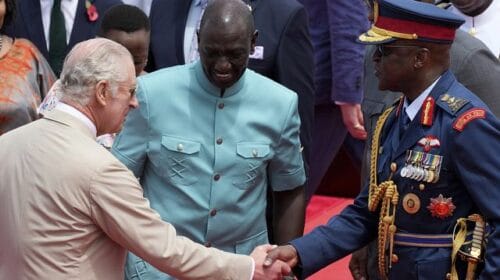South African court sets aside arms deal inquiry findings
JOHANNESBURG (Reuters) – South Africa’s High Court on Wednesday set aside the findings of an inquiry that found no evidence of corruption in an arms deal in the 1990s linked to former president Jacob Zuma.
Corruption campaigners have long denounced the inquiry, set up by Zuma in 2011 and headed by Judge Willie Seriti, as a “whitewash” and challenged its findings in court.
The High Court found the inquiry had failed to comprehensively examine corruption allegations over the deal to buy 30 billion rand ($2 billion) of European military hardware for the South African armed forces.
Zuma was linked to the deal through his former financial adviser, who was jailed for corruption, but denied wrongdoing.
The High Court found the Seriti inquiry had failed to test witnesses with an open and inquiring mind.
“This is hardly an investigation whose objective is to get to the bottom of the allegations,” Judge Dunstan Mlambo said.
Charges against Zuma over the arms deal were reinstated last year, and Zuma has been in court on several occasions since, cementing a fall from grace for a politician who had dominated politics for a decade.
Zuma’s successor, President Cyril Ramaphosa, has promised to crack down on corruption since becoming head of state in February 2018, but his room for manoeuvre has been limited by the influence that Zuma allies still wield in the governing African National Congress (ANC) party.
Zuma’s lawyers argued in court in May that the 77-year-old former president had been treated unfairly by prosecutors and sought a permanent stay of prosecution.
The case against Zuma and co-accused French arms company Thales has been postponed pending judgment on the stay of prosecution. Thales has said it believes “it cannot obtain a fair trial” because of lengthy delays in the case.
($1 = 15.2446 rand)
Reporting by Alexander Winning, Editing by William Maclean



